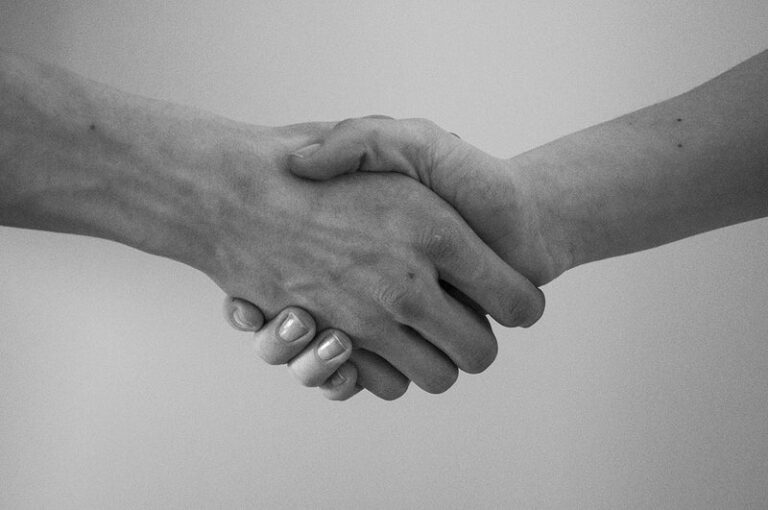
What Happened?
On Wednesday of this past week, Times of Israel editor-in-chief David Horovitz published a captivating conversation that he had with American-Israeli author Yossi Klein Halevi and Palestinian educator Dr. Mohammed Dajani Daoudi. On the surface, Klein Halevi and Dajani Daoudi are quite the odd couple. Klein Halevi is a former Jewish extremist (in his own words), and Dajani Daoudi is a former senior Fatah operative who, at one point in his life, felt that “to even speak to a Jew, that was something catastrophic.” Last year, Klein Halevi published a book called Letters to My Palestinian Neighbor, explaining Judaism and Zionism to his Palestinian neighbors. He encouraged Palestinians to respond to these “letters,” and the book was recently published with an epilogue that included some 50 letters that Klein Halevi received in response to his book.
One person who wrote such a letter was Dajani Daoudi, known for taking a group of Palestinian students to visit Auschwitz. Dajani Daoudi used to have strong antipathy towards Jews and then explained how “unremarkable acts of kindness and grace by the Israeli medical personnel who treated his parents utterly changed him.” This change helped him understand something about empathy. He led a group of Palestinian students to a Nazi death camp in order to help foster understanding and empathy between the two groups, but this trip caused him to be ostracized from much of the Palestinian community, “destroyed his professional career and, in some circles, his reputation.” Horovitz invited Dajani Daoudi to his office to join him in conversation with Klein Halevi, which gave birth to this thoughtful exchange.
Why Does This Matter?
Klein Halevi’s goal in writing Letters was straightforward, arguing that while we are within our rights to be “outraged” when the Palestinian community attacks the legitimacy of the Jewish people to the Land of Israel, “we’ve simply never bothered to explain it to them before.” Klein Halevi’s had ambitious aspirations for this project, explaining to Horovitz that he wanted to “facilitate a mutually empowering dialogue: each side would learn more about the other.”
His goal was never to convince the Palestinians about the Jewish perspective and experience, but rather to “complicate the picture and to at least get Palestinians to understand that there is a coherent Jewish narrative,” which is so often ignored in their textbooks and media.
To that end, Klein Halevi made the decision to translate the book into Arabic and “the leading Moroccan daily (Al Ahdath Al Maghribia) recently published a front-page review, and the leading Saudi Arabian news magazine, Al Majallah, included the story as well.
Diversity of Perspectives
Not everyone was thrilled with Klein Halevi’s Letters. He notes how some extremists wrote about destroying him and burning him, while some people on the right sarcastically said, “So you think you’re going to make peace?”
One of the major detractors of the book was Palestinian writer and public intellectual Raja Shehadeh, who published a harsh, critique of the book in the New York Times. Shehadeh accuses Klein Halevi of condescension and lecturing, stating that “to make peace possible, the Palestinians are not required to become Zionists” and “all most of us wish is for Israel to withdraw from the territories it has occupied and leave us to go on with our lives.”
David Suissa, editor of the Jewish Journal, then went at Shehadeh, calling him “so drenched in smug victimhood,” and also calling Shehadeh out for “falling back on the ‘tired trope of chronic victimhood that has served only to perpetuate Palestinian misery,’” blaming Israel for all problems Palestinians face and taking no responsibility for the lack of peace between them and Israel. Suissa concluded that a time for settlement “will never come if the Shehadehs of the Palestinian world continue to treat Palestinians as hopeless victims who are too weak to ever understand the authentic longings of their Jewish neighbors.”
Klein Halevi himself published a response to Shehadeh, expressing his main point that “a prerequisite for peace is that we stop denying the right of the other to exist” and a personal blow: “because your work has been so important to me, I was especially disappointed by your unequivocal dismissal.”
Within the American Jewish landscape, Letters to My Palestinian Neighbor was well received. Klein Halevi notes, “The Forward responded to the empathic outreach to Palestinians, and Commentary responded to the strong defense of the Zionist narrative.” Liam Hoare wrote for the Forward, “Halevi’s story is both clearheaded and very much penned in the spirit of reconciliation. He seeks to strip away misconceptions.” Elliot Kaufman, in Commentary, said, “Capturing the enduring Jewish love of the land of Israel and the magic as well as the dilemmas of Zionism, the letters are highly compelling… An inspired reading of the Israeli soul, Letters to My Palestinian Neighbor should be recommended to non-Jews and Jews alike.”
Originally Published Jun 20, 2019 11:19PM EDT
